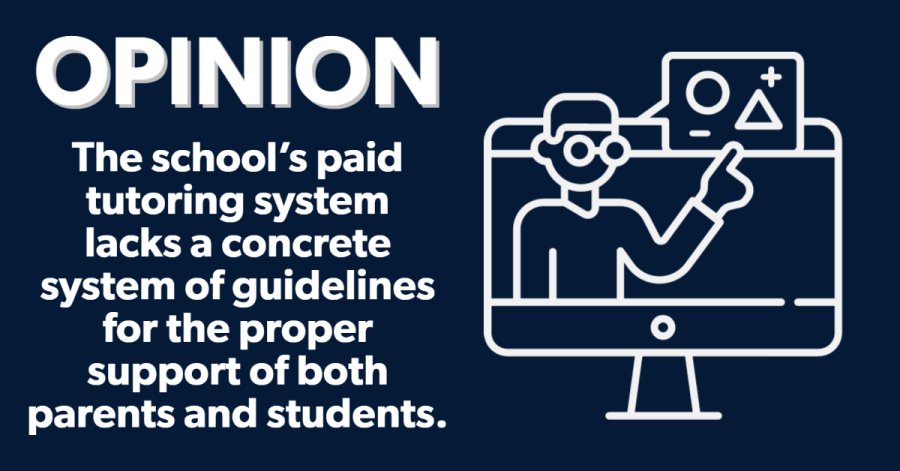OPINION: The school’s paid tutoring system lacks a concrete system of guidelines for the proper support of both parents and students.
Many Diamond Bar High School students sign up for paid tutoring in hopes of landing a convenient and possibly first job, but the unfortunate reality is that the paid tutoring environment isn’t ideal at DBHS for both tutors and parents.
Without any kind of proper debriefing for both student tutors and parents, too many students and parents have negative experiences working in this service.
At the beginning of each school year, GLCs offer all juniors and seniors the job opportunity to tutor students from elementary to high school level subjects. Students interested in becoming tutors can sign up for whatever subject they feel comfortable teaching, ranging from academic courses like English and mathematics to artistic classes like music and art as long as they have taken and passed the course with a B or higher.
In theory, the GLCs will share potential tutors’ contact information with parents, who then negotiate fairly in private on availability, cost, location and other relevant affairs. But in practice, the system fails to protect the tutors’ rights as workers or properly serve the parents and students in a satisfactory way.
For instance, when parents and tutors are discussing prices, some parents fail to see that the tutors are private contractors and can thus set the prices for their services. That isn’t to say that charging $100 per hour isn’t an exorbitant amount of money for mere tutoring, but pressuring minors to work below the legal minimum wage of $15 per hour for several hours a week is not fair, especially when there are glaring power differences and dynamics between adults and teenagers.
In addition, parents can constantly compare one tutor’s low prices to another tutor’s higher prices to get out of paying more expensive prices. Thus, student tutors often cave to their employer’s wishes and end up dissatisfied with their pay.
On the other side of the spectrum, because tutors can be any willing student, the quality and qualifications of the tutors are not necessarily guaranteed. Since students’ grades aren’t a checked factor in the selection process, student tutors can put down subjects that they are not confident in nor prepared to tutor in hopes of increasing their chances of getting called to tutor. This negligence can cause confusion for customers between what they are learning in class and what the tutors are teaching.
Nevertheless, the best way to satisfy both students and parents is for the GLCs to set solid guidelines and expectations for students and parents in the tutoring system. An established $15 per hour minimum wage for student tutors can be implemented to improve the experiences of both tutors and parents. In addition, quality-checking tutors would be helpful to make sure tutors are qualified to teach the subjects they claim they can.
The current paid tutoring service is a great help for students to keep up with their classes and for some to make money on the side, but implementing these changes would help the system be even more beneficial to parents and students alike.
Your donation will support the student journalists of Diamond Bar High School. Your contribution will allow us to purchase equipment and cover our annual website hosting costs.



